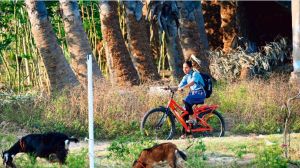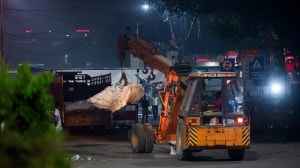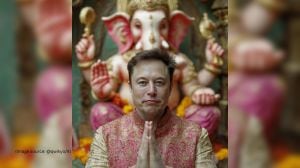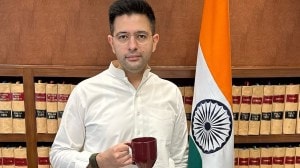Fearing coup,Nasheed got India to back him in 2010
The former Maldivian president had to be bailed out more than once through his crisis-ridden presidency.
Mohammed Nasheed may now claim that that he was forced to quit office,but the fact is that the former Maldivian president had to be bailed out more than once through his crisis-ridden presidency. The closest shave was in 2010,when he survived after India firmly backed him.
Even then New Delhi was cautious not to rush in military back-up as Nasheed had hoped for,but a Navy ship did make an innocuous port call at the height of the 2010 crisis. Also,an aircraft from the ARC (RAWs aviation wing) was flown to Male just to assure Nasheed that his safety was a priority for India. In fact,after this,a regular contingency plan was put in place for Maldives,which included Indian para commandos taking control of Male airport within four hours of any emergency. This alert was in place even now,but the government decided against any overt intervention.
In 2010,India had responded to an urgent message from Nasheed that he feared a coup after his decision to place the Deputy Speaker of Parliament Ahmed Nazir under house arrest had provoked almost all entities in the fragile Maldivian system. He found himself in a stand-off with the Opposition,the police and judiciary. The military was still taking his orders,but its top brass was getting restive at being asked to follow instructions which had been deemed illegal by the Supreme Court.
The crux of the problem was the same as now. Nasheeds Maldives Democratic Party (MDP) does not enjoy a majority in the 77-member Parliament. In the 2009 parliamentary elections,the MDP had secured 28 seats and managed support of four Independents but that was still short of the halfway mark.
Though Maldives has a presidential system in place,the latest Constitution of 2008 wrested considerable powers from the President,including the authority to decide on subsidies and levying taxes. Also,each cabinet member has to be confirmed by the Parliament.
Nasheed was then finding it difficult to get the Parliament to approve his cabinet members and,at one point,the ministers even resigned in protest. In that heated scenario,he had gone ahead and ordered the arrest of the Deputy Speaker. The judiciary immediately rejected the plea for a warrant. And so,the police chief refused to carry out the arrest without courts consent.
At that stage,Nasheed had asked the Army to arrest Nazim. The military,which comes directly under the President,reluctantly complied and placed the Deputy Speaker under preventive custody. But later,the top brass conveyed its disapproval of Nasheeds ways to key Indian interlocutors.
With all arms of the Maldivian political system pointing fingers at Nasheed,he feared ouster and sent out an SOS to New Delhi. The government here asked intelligence and security agencies to move fast and secure Nasheeds position. There was overwhelming support for him among the security agencies because of his extraordinary cooperation on sensitive issues.
Its learnt that Nasheed would regularly send lists of Maldivian students studying in India,who were suspected radicals. In fact,it was this effort which led to the discovery that many fundamentalist Maldivian groups were sending terror recruits in the garb of students to India,who would later smuggle themselves into Pakistan for training. He had also agreed to far-reaching defence arrangements with India after 26/11.
So when the SOS came,senior officials were dispatched who spoke to the Chief of the Maldives Army,the police head,leader of the Opposition and judicial members. Soon,sources said,it came to light that Nasheed had been authoritarian and had,in fact,not even spoken to the LoP in six months. The Police and the Army were equally upset with his outlandish orders.
In the weeks that followed,Indian interlocutors worked behind the scenes to broker peace,arranged a marathon meeting between Nasheed and the Opposition leaders to let Parliament function and counselled Nasheed to accept the reality of numbers in a democracy. For the next couple of years,officials were regularly sent from New Delhi to counsel him on political issues.
But,sources said,he continued to harbour authoritative instincts which he felt were naturally bestowed on the Presidents office. So when he acted against the judiciary this time,there was a spontaneous revolt which,officials believe,was beyond cure by Indias subtle interventions.


- 01
- 02
- 03
- 04
- 05





























